Billionaire Island Looks for Humanity in the Worst Places
Mark Russell & Steve Pugh’s new book is about finding decency in the worst people: tech CEOs.
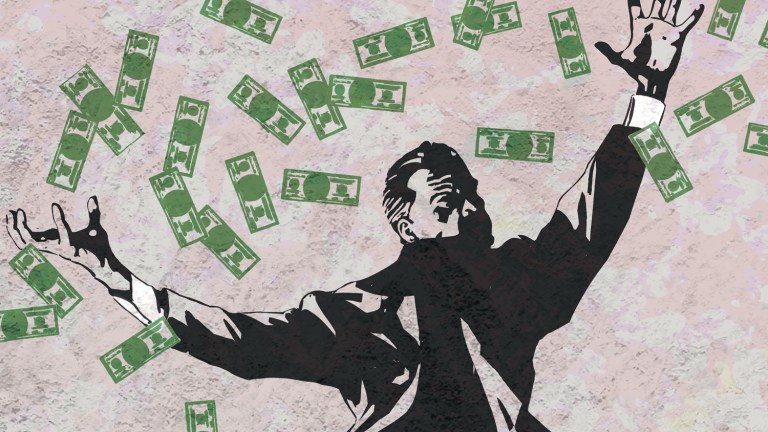
We’ve never been especially shy about our appreciation of Mark Russell’s comics work. Flintstones was hilarious; Snagglepuss Chronicles was groundbreaking; Riddler: Year of the Villain was outstanding and shockingly straightforward; even his first work, God Is Disappointed In You, is some of the smartest, wryest writing you’ll find. In Second Coming (out now in collected edition), Russell and artists Richard Pace and Leonard Kirk took the Christ metaphor so often applied to Superman and stripped out the metaphor.
“Second Coming actually began as two completely different story ideas. One about Christ returning to Earth to be appalled by what’s been done with his teachings and another story about a superhero coming to realize just how few of the world’s problems can be solved with superpowers,” Russell tells us in a conversation about his Ahoy comics work. “But, at some point, it occurred to me that these were the same story as seen from two different angles. One about compassion being twisted into violence and one about violence giving way to compassion.”
The tension between the spiritual violence of the real world and our thirst for compassion is core to much of Russell’s work. Everything he’s done – whether it’s looking for humanity in inhumane systems in Flintstones, or seeing the core dignity of Edward Nygma in Year of the Villain – has been about finding the value in the people in the stories. In fact, the most interesting thing about the announcement that Russell and Flintstones artist Steve Pugh would be getting back together to take on clueless, destructive billionaires was how they would find that same balance in a story where circumstance makes that decency harder to find.
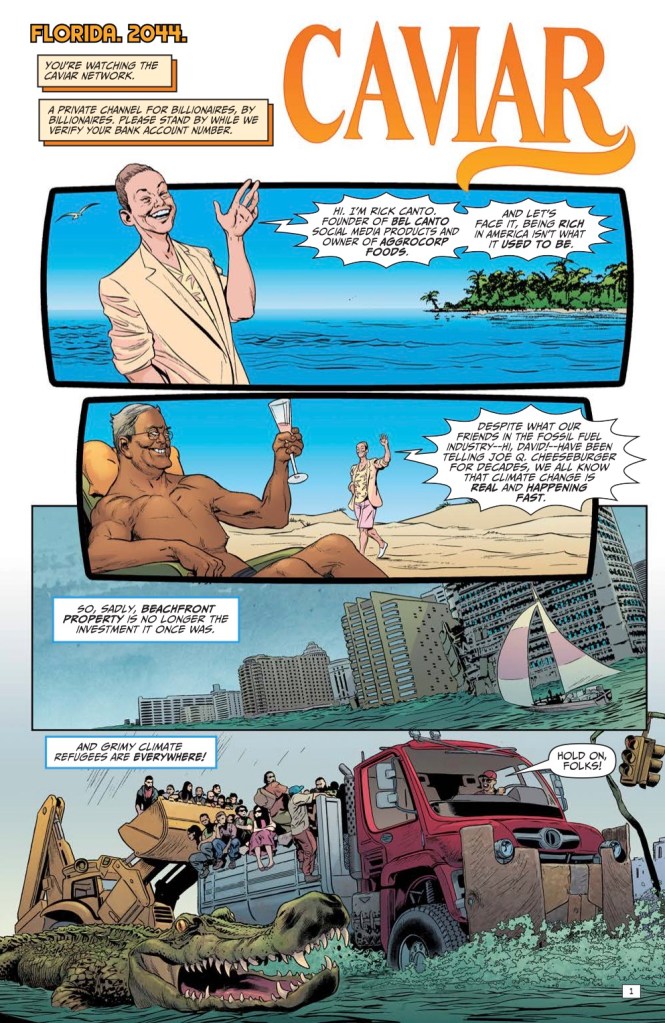
Billionaire Island is the story of Freedom Unlimited: a floating libertarian island paradise with a wealth minimum for admission, adrift in a world collapsing from climate change. It is, predictably, built on piles and piles of horror, but it’s run by a hilariously evil social media tycoon, Rick Canto. The danger of tackling a story this close to home, that touches on so much real fear and anxiety, is making sure that it never slips from biting satire to repetitive screed. “You’ve…got to have hope, no matter how misplaced it may be,” Russell says. “And you have to be able to laugh at a situation, no matter how dire, because laughter implies that it can be overcome. In a way, laughter is a species of hope.”
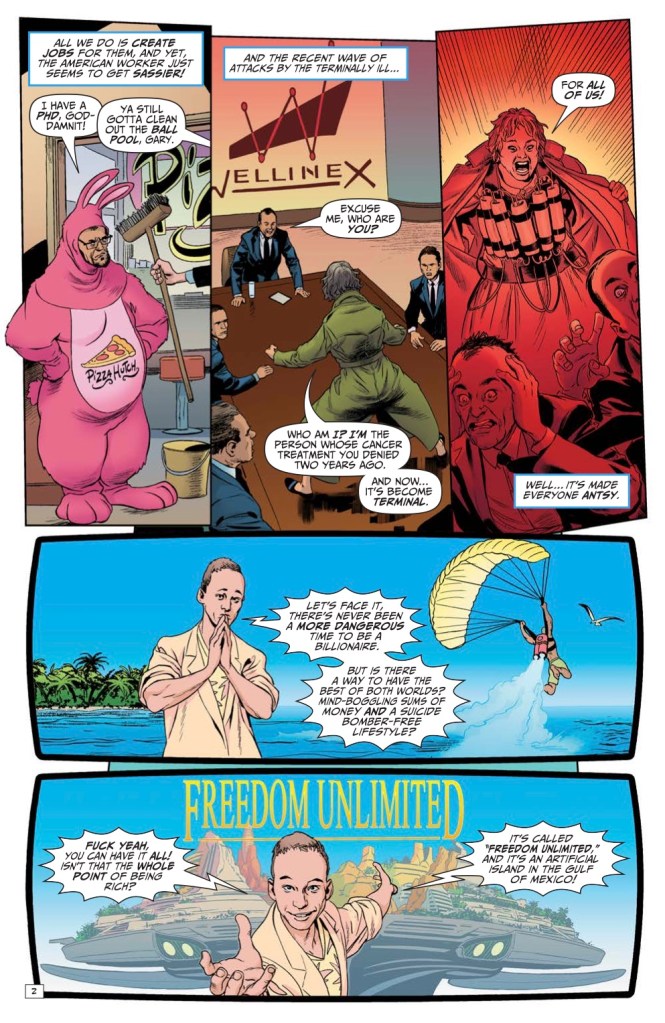
From a strictly craft perspective, Billionaire Island is incredibly exciting. It reunites Russell with his Flintstones collaborator, Steve Pugh. “Steve’s a big star now, so I have to be careful not to anger him,” says Russell. “I think we established a really good shorthand for understanding each other while working on The Flintstones, so thankfully, we were pretty much on the same page from the beginning of this project.” It’s evident in the first issue. The pages are as crammed with jokes as their first collaboration, with Pugh amplifying the inherent absurdity in setups with killer body language finishes.
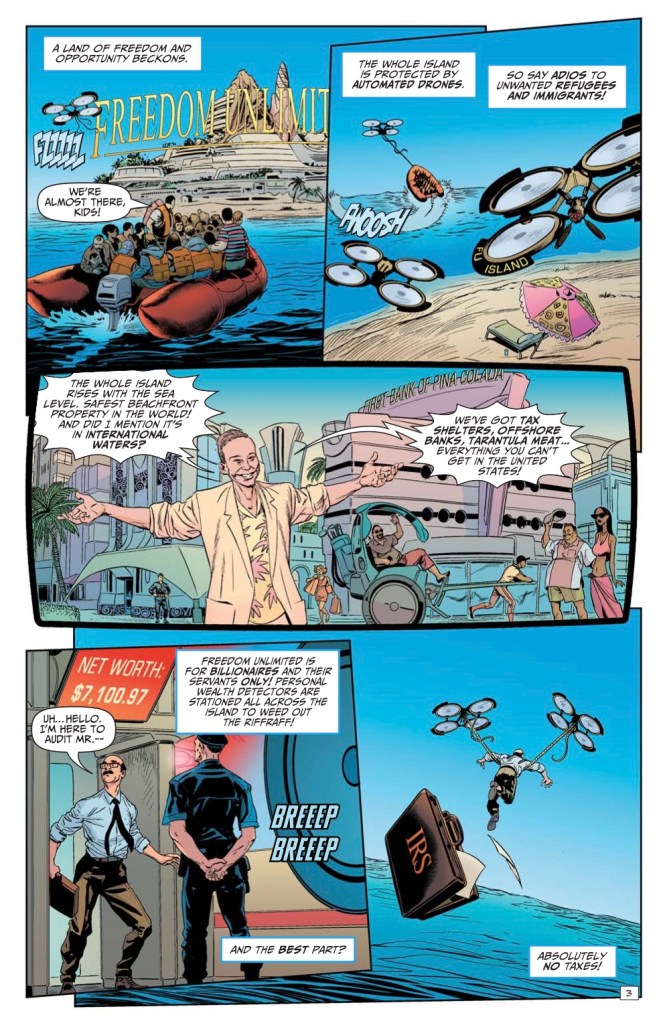
Pugh’s talent for expressive characters, and Russell’s insistence in finding the humanity in even the worst people helps keep Rick Canto, the libertarian social media CEO villain of Billionaire Island, out of cartoonish stereotype territory. This is a feat, considering most of his real life analogues have the depth and intellectual verve of a construction paper diorama. ”[Canto]’s not some evil-for-the-sake-of-evil bad guy, but a guy with reasons for the things he believes and does,” Russell tells us. “He’s an amalgam of several real world figures and, as such, is the caretaker of their collective worldview which, even when viewed charitably, spells doom for the human race.”

A setting so dire and villains so inherently ridiculous makes finding the grace in the story and the characters that much more important. “Even when writing about something as dark and deeply pessimistic as the impending doom of the human race in Billionaire Island, or how we are manipulated and abused by empire and its institutions as in Second Coming, [it’s critical] to deal with these subjects with hope and humanity,” Rusell says. Because it can’t all just be a matter of fighting the darkness. There has to be light at the end of it all.” That core of hope and humanity is what helps his work transcend from funny and deft to become lasting, meaningful storytelling (that’s also funny as hell).
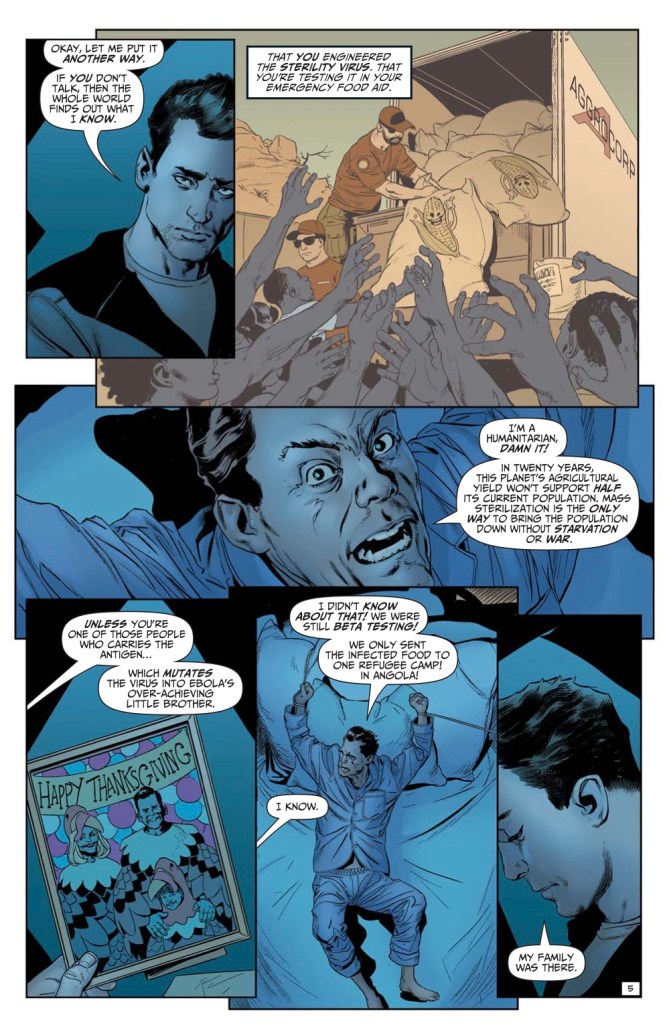
And it will stay funny as hell. Pugh and Russell are two of the most talented humorists working in modern comics, so funny they sometimes don’t even realize it. As Russell tells us, “…There’s a dog character in Billionaire Island. When tasked with drawing a dog, Steve came up with an exact replica of Spuds McKenzie, the dog from the Budweiser ads in the 1980s. When we pointed this out, Steve who is British and has access to good beer, had no idea who Spuds McKenzie was. He had drawn Spuds completely inadvertently. So we had him change the dog, but that still sort of creeps me out in some way.”
For more from Mark Russell, Steve Pugh, Billionaire Island or the annals of Bud commercials, stick with Den of Geek!
